Alps Electric is another one of the more obscure hard drive manufacturers, although having such a large presence in computer peripherals (e.g. floppy disk drives) perhaps it’s unsurprising that their hard drive division did offer some success to the company.
With the year 1992 shaping up to be a competitive year for the hard drive industry, Alps released the DR311C911A, a 120MB PATA unit.
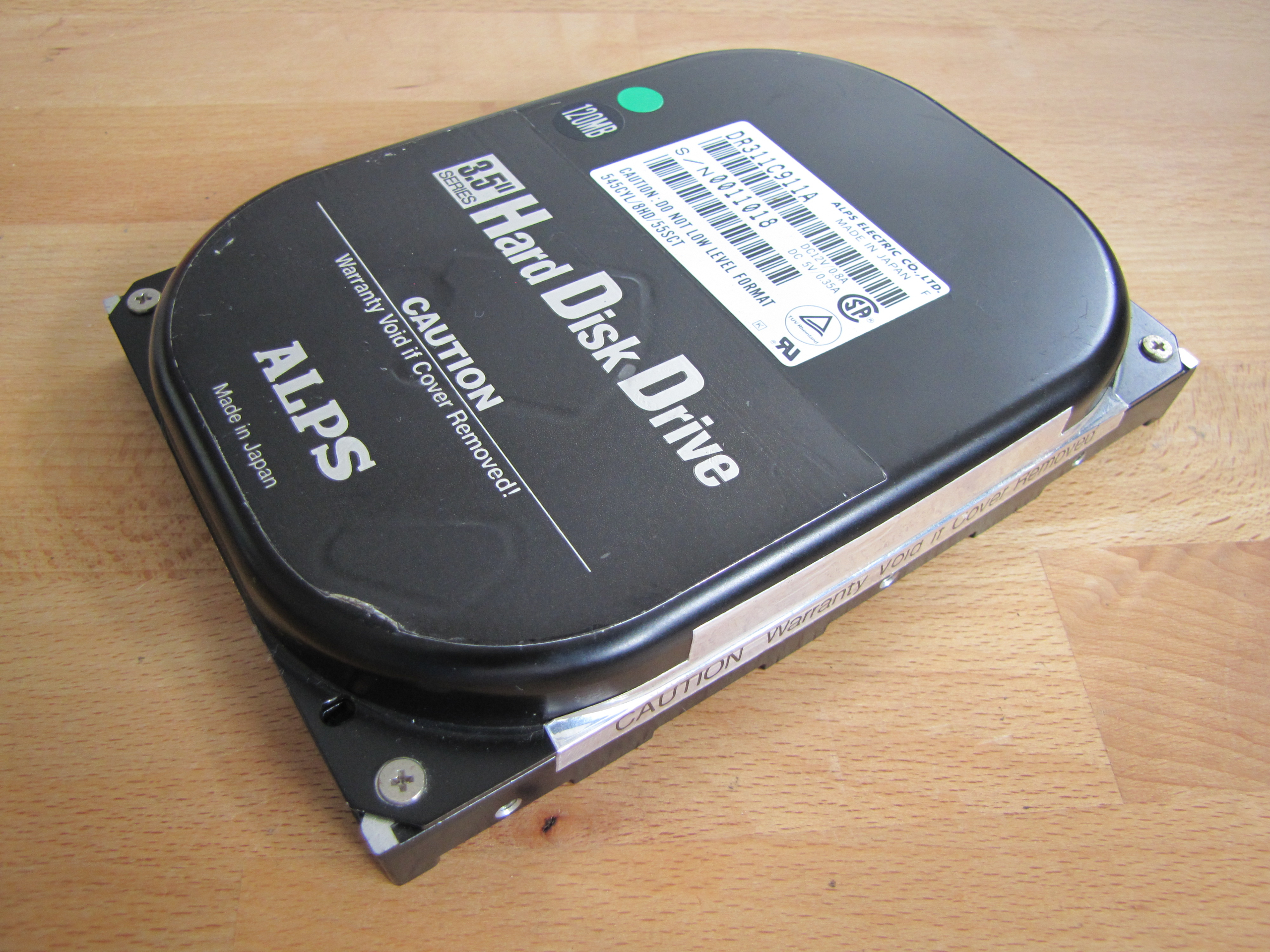
Drive Attributes ------------------------------------- Alps Electric DR311C911A ------------------------------------- Capacity 120MB Mfc Date 1992 (Q4) Format 3.5" Interface PATA Platters 1 Heads 2 Cache 32KB RPM 3400 CHS 545/8/55 Origin Japan (ALPS) -------------------------------------
The DR311C911A is an example of a lower-end model in Alps’ line-up of drives, with it featuring only a single platter, compared to the highest-end two platter model coming in at 240MB.
These drives utilise head-locking solenoids, which is likely carried over from the fact that these are available in SCSI formats also.
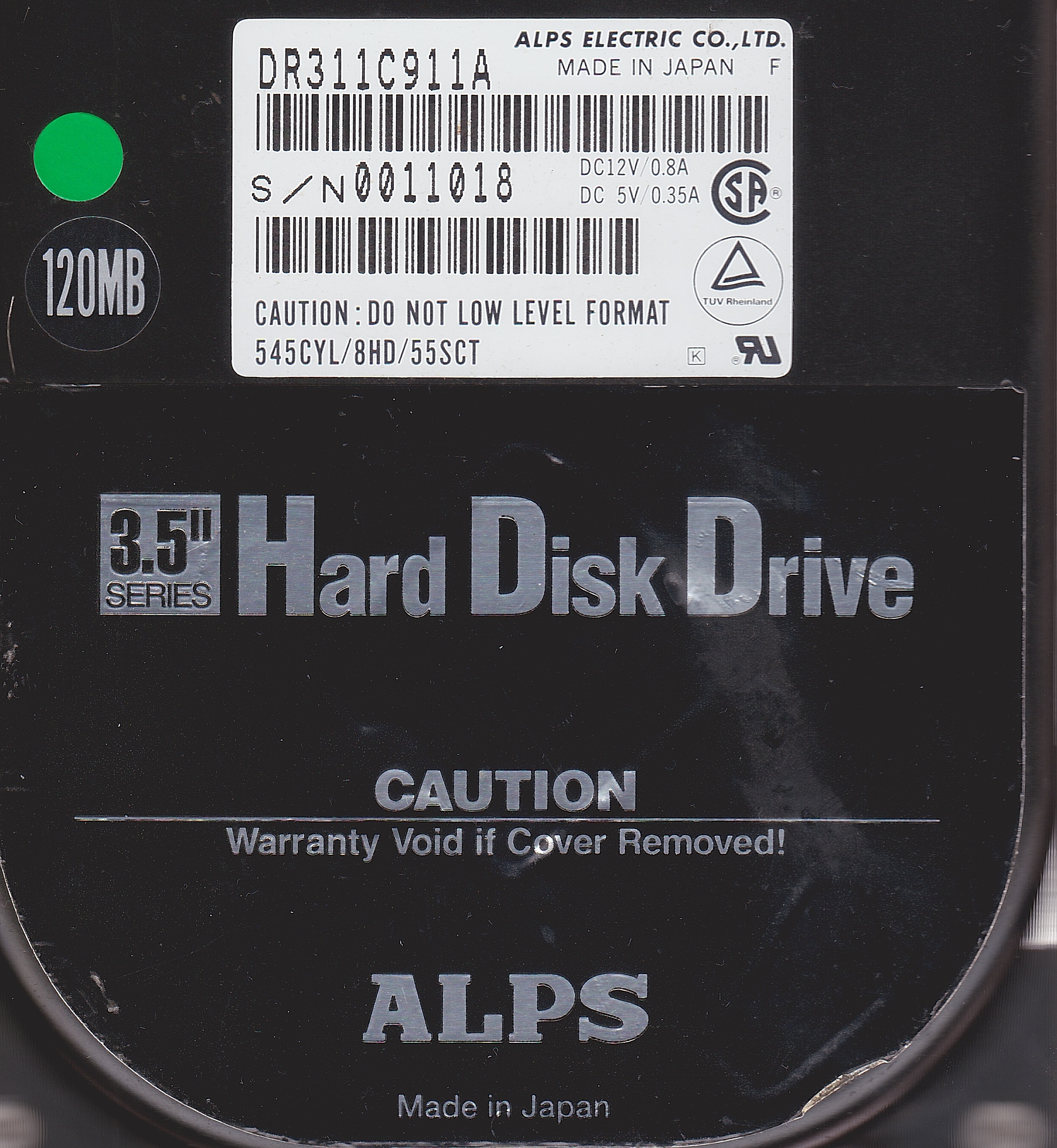
The label on this drive bluntly states to the world that it is indeed a “3.5” Hard Drive Drive”. Fortunately, CHS values are present on the lid, alongside a seperate sticker dictating capacity.
This drive was manufactured in Japan in one of the many factories owned by Alps Electric at the time.


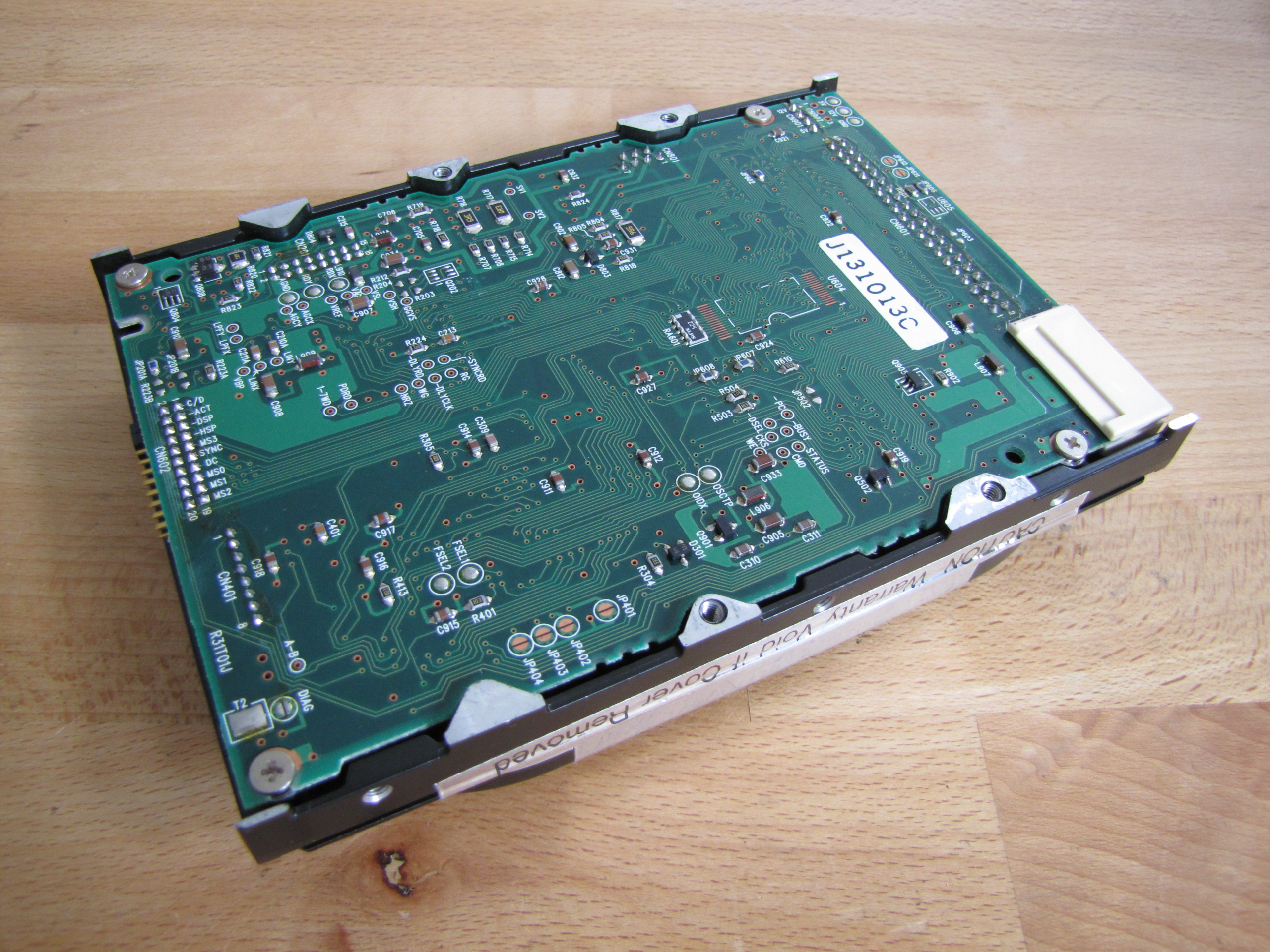
This is another example of excellent design, with the board logic facing inwards. As with most Alps drives of this period, it can be powered either via 4-pin molex or with a floppy drive power connector. A handy move for use with certain systems!
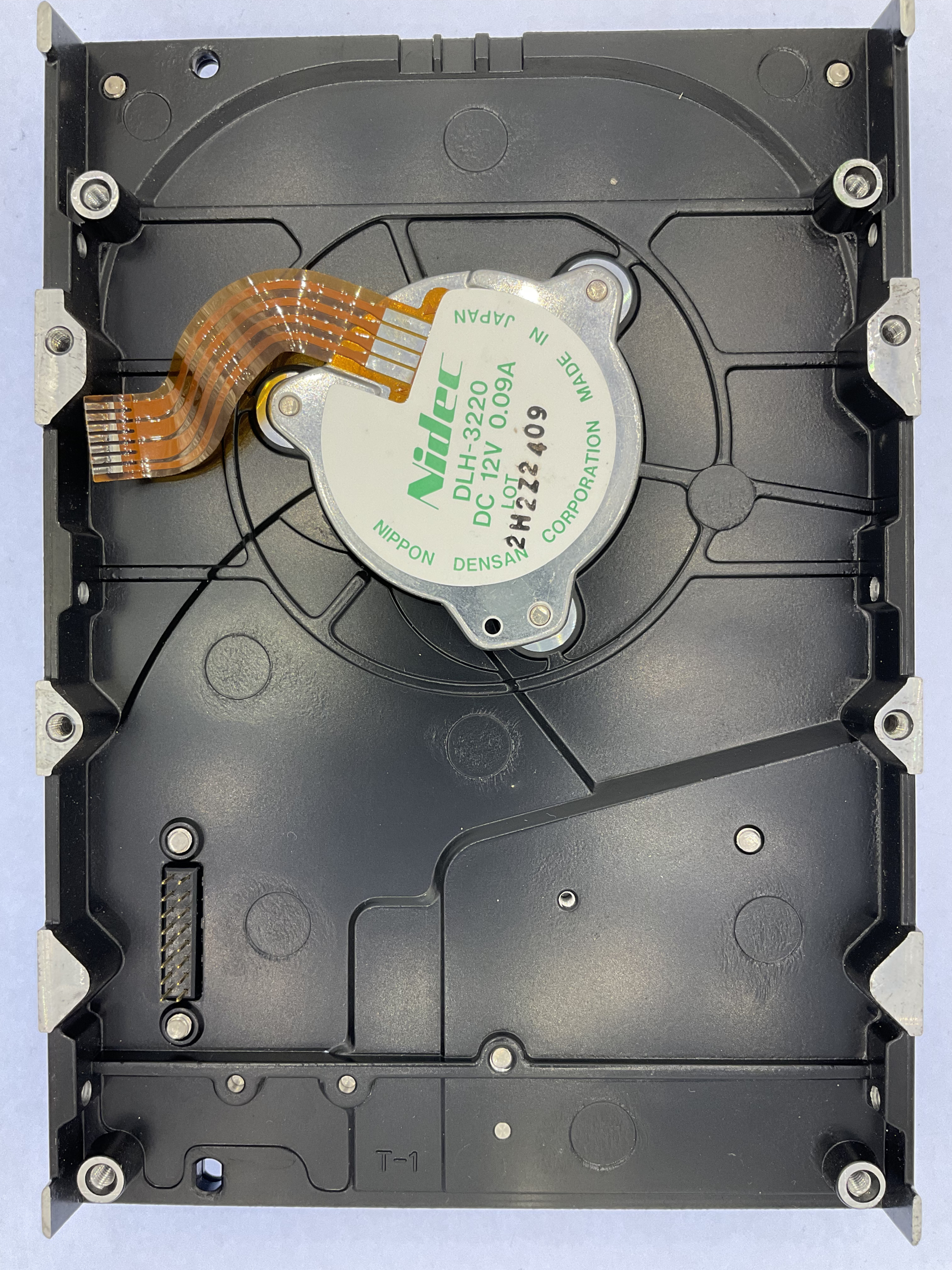
Surprisingly, when removing the PCB, there’s no seperating material present. The spindle motor is supplied by Nidec, utilising one of the worst integrations of motor connection methods known to humanity: the pressure ribbon socket. To the bottom left there’s the standard head-stack pin connector.
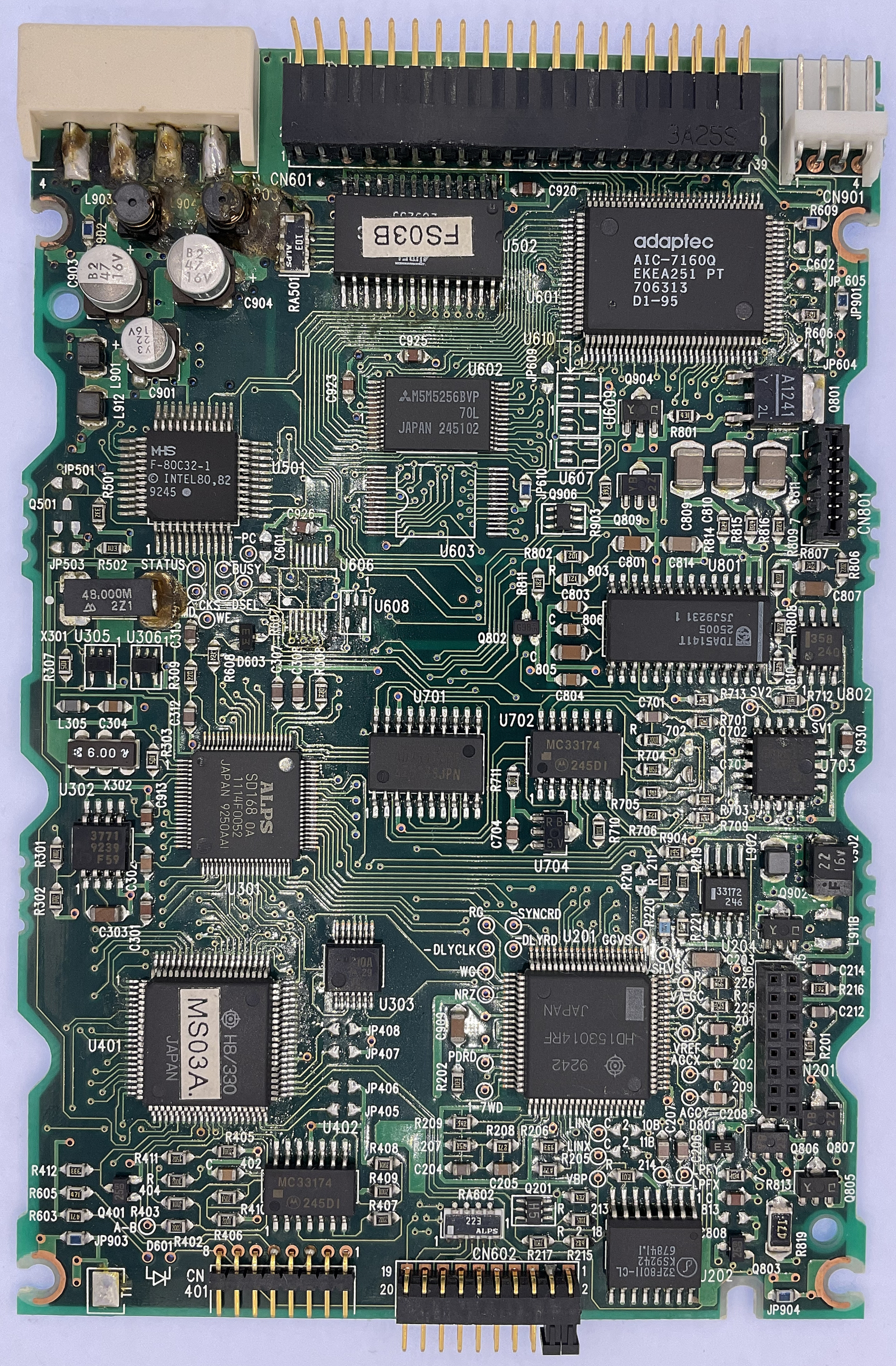
The logic on these drives is quite interesting, featuring a particularly tiny custom chip from Alps (the few resistor arrays on the board are also provided from Alps themselves). The interface adapter is from Adaptec, with cache being supplied by Mitsubishi (32KB in total).
To the top left, there’s some evidence of a mixture of flux & glue going nasty, alongside some fairly minor capacitor leakage. Unfortunately, these units feature the more failure-prone surface mount electrolytic capacitors, which are always a nightmare for those dealing with old electronics due to their leaky nature. Replacing them shouldn’t be too much trouble.
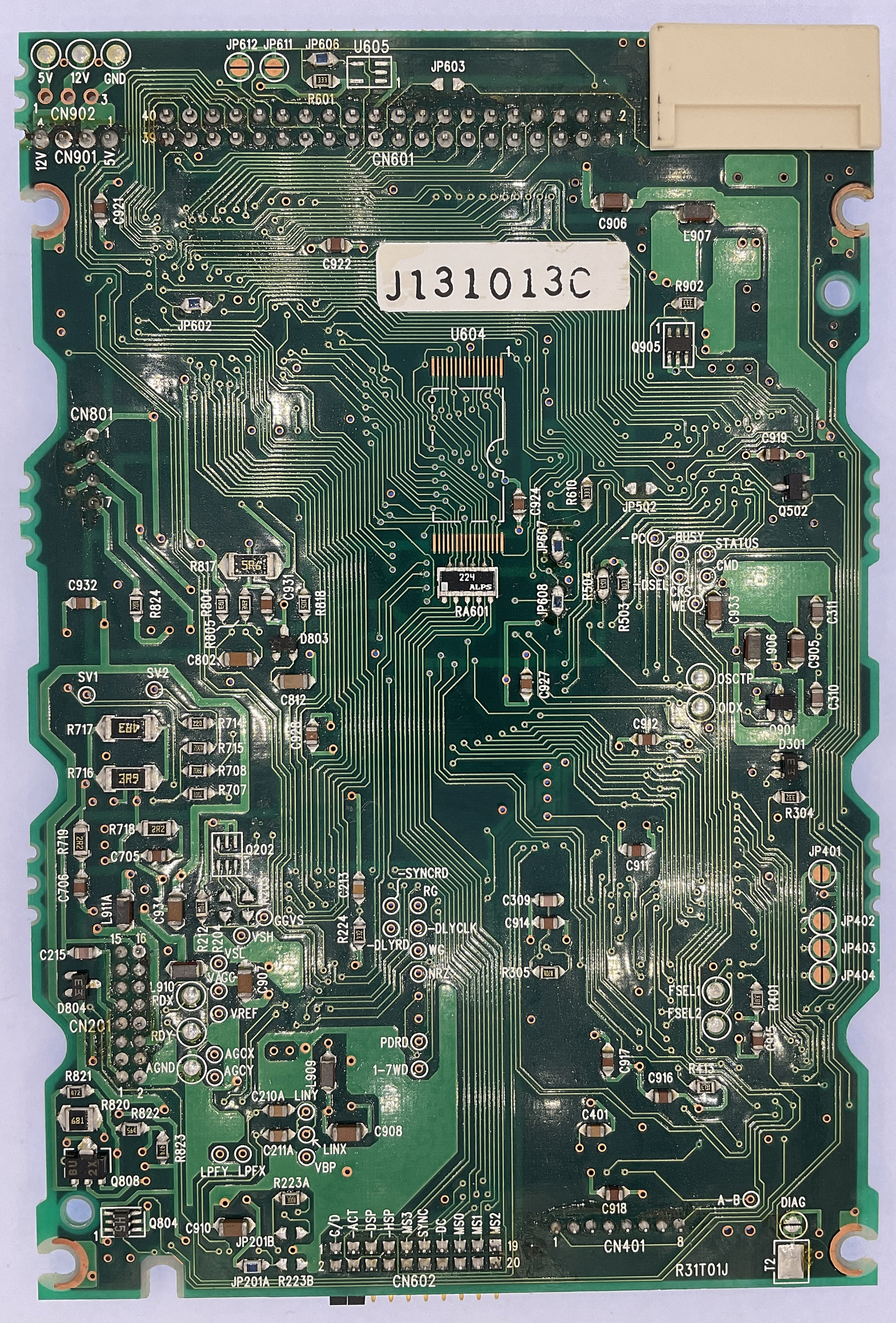
On the rear, the jumper settings available for this unit are present to the bottom of the board. Test points are plentiful, with particularly useful silkscreen.
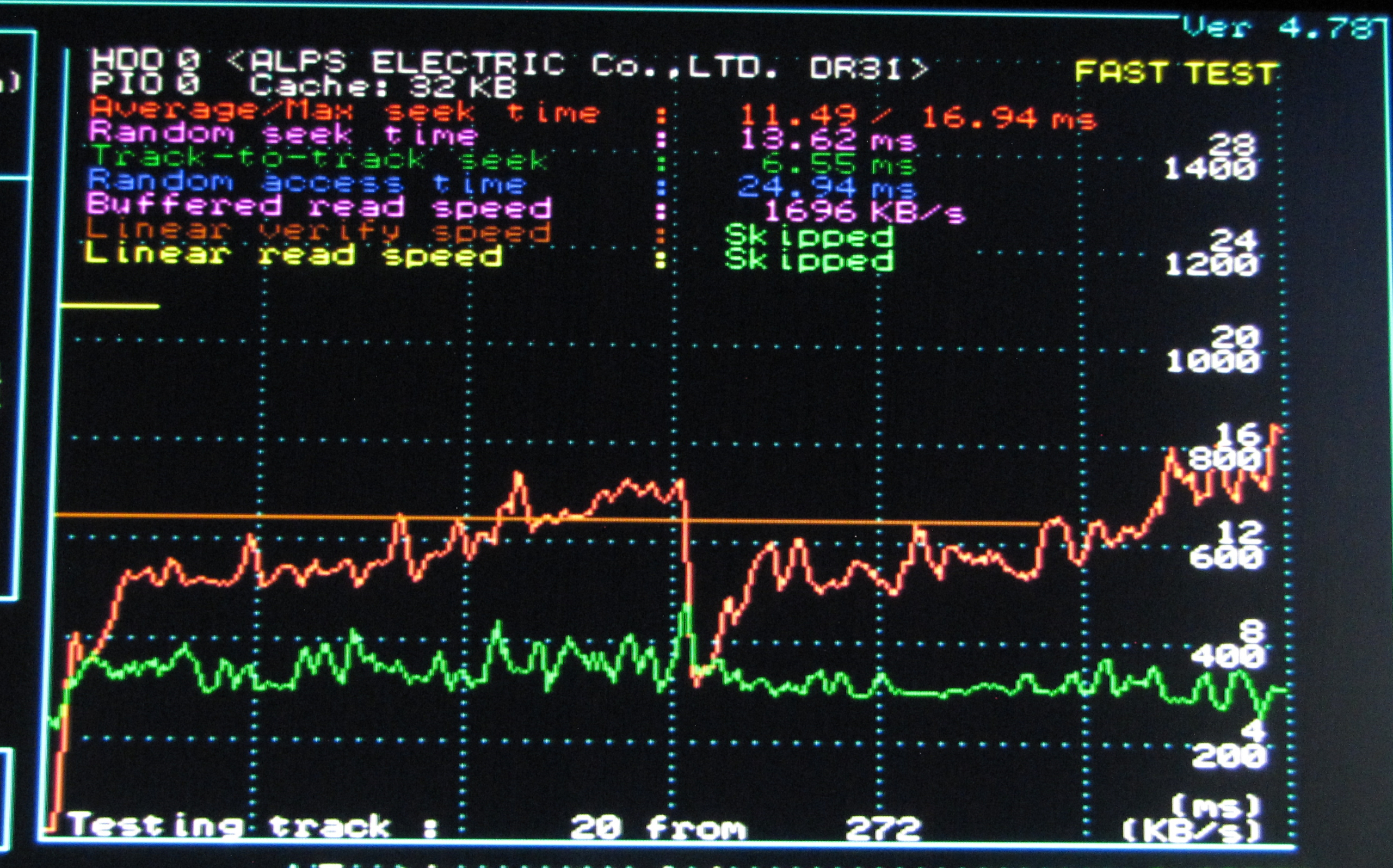
Dealing with more obscure drives results in interesting results, such as the track access layout shown above. This drive utilises the first surface fully, before moving onto the second. For drives that share this fairly interesting difference compared to standard models from the period, feel free to check my coverage on the Toshiba MK1034FC, Toshiba MK1422FCV, or Conner Peripherals CP30104H. Nonetheless, performance is quite excellent for a drive of the period.
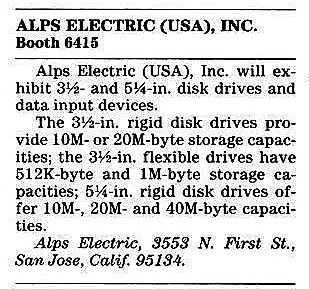
Alps Electric exited the hard drive space in the middle of the 1990’s, driving more focus on floppy drives & external peripherals. The company combined names with its consumer audio division subsidiary, Alpine Electronics, in 2019, now being known as Alps Alpine Co., Ltd.
If you missed the video I made on this drive, you can find it here:
References:
[1] Computerworld (1985) 8th July 1985, 8 Jul 1985, 132 pages, Vol. 19, No. 27, ISSN 0010-4841, Published by IDG Enterprise, Acquired from: https://books.google.nl/books?id=h81aecuhbNMC